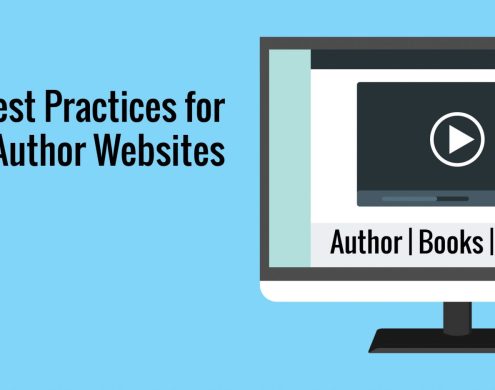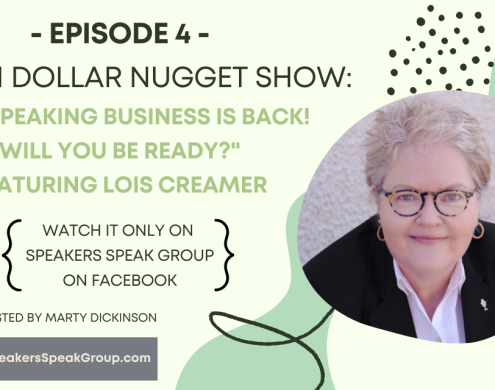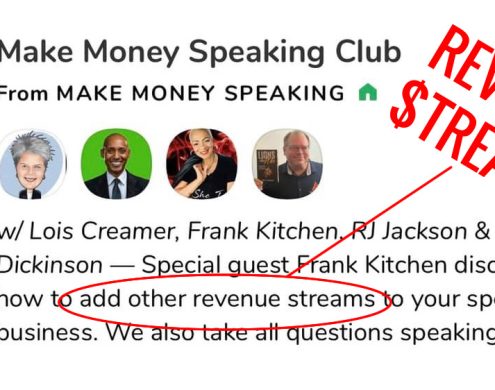
Company managers know they need to keep providing education and inspiration for their employees. As a result, they turn to professional speakers to edutain and uplift their audiences through annual, quarterly and monthly events.
Why Speak at Corporate Events?
Even though in-person events stopped at the beginning of the Covid shutdown in 2020, corporations quickly moved to virtual live communications. And they are willing to invest in speakers and training.
How to Find and Secure Paid Speaking Dates with Companies
Two steps sum it all up:
- Contact decision makers.
- Kow what to say to the decision makers.
In this post, we will keep an ongoing and up-to-date list of trends related to finding and contacting decision makers for corporate events and trends for what is working when speaking to, or emailing, corporate speaking decision makers.
Notes from Monday, September 20, 201 - Make Money Speaking on Clubhouse with Lois Creamer
Continued discussion from September 13…
After you give a speech, give a follow-up thank you call within 48 hours of presenting. Call the person that made the decision to bring you in and say:
“I enjoyed presenting to your group.
“I wanted to make sure I covered everything your audience was expecting.
“If you would put your comments in the form of a testimonial, I would sure appreciate it.
“If I was a fit for you, I might be a good fit for others you know.”
How to Find Corporate Contacts for Speaking Opportunities
- Start locally
- Go regiounal
- Consider getting a subscription to Hoover to find VP Sales contacts for companies where you’ll get email addresses and contact details…but might not be necessary since a lot of contacts can be found by mining websites.
- Search Google for top 20 sub-industry types in your area.
- Go to the “Press Page” on the website.
- Get a name from the Press Page and see if there’s a list of officers.
- Call the company and ask “Who is your VP Sales?”
[When you call, or wind up having to leave a voicemail, use the scripts from last week’s Make Money Speaking session notes below]
- What you do should dictate if you are a good fit for a speaking opportunity or company.
- Be more specific than just “personal development” as your speech topic.
- “This is the expertise I have. This is the outcome your audience I would bring.”
- Do not use the word “motivate” in your description of the outcome you deliver to an audience.
- Outcome statements are why they buy us. “The 5 steps” are the medicine that get to that outcome.
- Call everything you do as a “program,” not a keynote or workshop or speech. Let your client tell you what they want it to look like. Ask what they want accomplished. Request level of audience of engagement desired.
Notes from Monday, September 13, 2021 - Make Money Speaking on Clubhouse with Lois Creamer
This week’s update is that associations are canceling more scheduled events than companies. So, work on your messaging to be attractive to corporate speaking opportunities for companies.
Have a good one-sheet, positioning statement, and bio.
People who hire speakers are calling speakers asking THEM if they’re still willing to travel.
We are speakers. We need to be optimistic about our industry.
- Avoid the mistake of thinking meeting or event planners book speakers. Executives, like the VP of Sales or VP Marketing, make decisions about speakers in corporate.
- Key to getting paid speaking opportunities for corporate clients is building a long-term relationship with them.
- Corporate speaker decision makers prefer to use the phone, so be prepared to pick up the phone and call them.
- Start every phone call and every email the same:
- Intro yourself by name.
- Positioning statement. (concept and outcome in 7 seconds)
- why you’re calling.
- Start qualifying them.
Example of Exactly What to Say in a Phone Call to a Decision Maker for a Corporate Speaking Event
Hello [name]. My name is Marty Dickinson with HereNextYear.comn where I work with CEOs, managers and leaders who want to develop their speaking skills so that they can gain clarity and confidence presenting virtually or in-person.
I’m reaching out to see if one of my programs might be a good fit for an upcoming meeting.
Do you use experts like me to present to your people?
I’d love to send something about what I do, but I want to be sure it would be welcome.
[If leaving voicemail]: I can be reached at [phone].
Again, this is Marty Dickinson, with HereNextYear.com.
Example of Exactly What to Write in an Email to a Decision Maker for a Corporate Speaking Event
Subject Line: Your Next Meeting?
Hello [name]. My name is Marty Dickinson with HereNextYear.com where I work with CEOs, managers and leaders who want to develop their speaking skills so that they can gain clarity and confidence presenting virtually or in-person.
I’m reaching out to see if one of my programs might be a good fit for an upcoming meeting.
Here is a link to my core offering sheet at https://martydickinson.com and please contact me by phone to discuss.
I will follow-up in a few days to make sure this email went through and I look forward to talking with you.
Marty Dickinson
President
HereNextYear.com
How to Qualify a Corporate Speaking Opportunity
Lois gave us a specific set of 10 questions to ask decision makers before accepting a company speaking opportunity.
- Do you use paid pro speakers?
- Who have you used in the past? (get idea of topics and rates)
- Do you have a specific program date? (hope for yes)
- Where will the meeting be held? (hybrid, in person, virtual)
- How many opportuntities this year?
- How is the decision made regarding speakers? Offer to speak to any other decision makers.
- When do you begin planning the meeting? Would you like me to back out the door andcheck-in later if they’re not in a planning mode. Then, follow up with “you said this time would be a good time to reach out to you and here is my snapshot of my business (one-sheet).
- Is there a focus or a theme to your meeting?
- Is there a budget I should be aware of? If they don’t bring up money, you need to.
- Is there anything else you would need from me to decide if I was a good fit?
BONUS Question: Try asking, “When do you start to look for your speakers?” so it doesn’t sound like you’re selling yourself so much.
Follow-Up with Corporate Speaker Decision Makers
Here are some sample emails and voicemails to try during your follow-up process with decision makers for hiring corporate speakers.
“I sent an email to you a couple of days ago. I hope you got a chance to read it. As a reminder, I [insert speaker positioning statement) and I thought I’d reach out to you personally. Do you think my program would be of interest to your company?
Try to establish a time. “Can I try to reach out to you in the Spring? I’ve worked with other organizations like yours and I know the Spring is a good time of the year to start planning.”
“When we spoke in September, nothing was happening. But, you suggested I call again in spring to see if anything has changed.”
To make one last attempt at contact:
Be persistent, not a pest. Email or follow-up with a phone call and say, “I know my program would be helpful because I’ve worked with companies like yours in the past, but this will be my last call.”
“I’ve been persistent to try to reach you because I know my program would be a good fit. I know my information is meaningful and applicable, but if I don’t hear from you this will be my last call. I never want to be a pest but I am persistent.” I don’t want you to think I don’t care, but I am a professional.”
Continue to send occasional emails of value even if they aren’t ready for a speaker. Keep them on your list.
Then contact them during the window of time they said you should follow-up.
Remember: If the answer is not “No,” then it’s a “maybe” or even “maybe later.”
After the Speaking Gig
After you have completed a speaking event, you always want to make contact with the person that hired you to speak. Offer a message of thanks and then ask, “What associations do you belong to?”
If you were a fit for the corporation, many associations they belong ti might be a good fit for you too. And, you will have a built-in recommendation and possibly even a contact name to reach out to at an association to speak for them.





